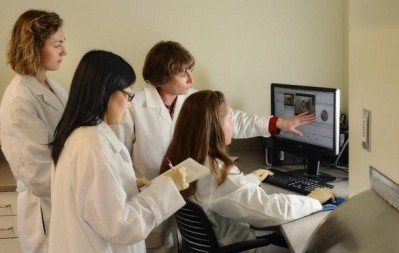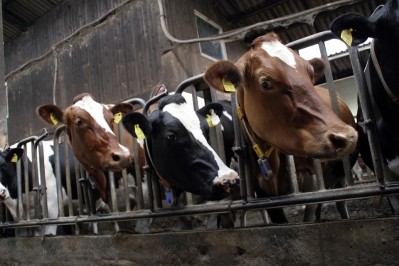Sepcial edition: getting more from your milk
Milk studies at Wageningen University and Research Centre

The university, which has a staff of 6,500 and 10,000 students from over 100 countries, has undergraduate and graduate programs that feed academia and industry around the world, with the dairy industry well represented.
Hein van Valenberg, from the Dairy Science and Technology group at the university, told DairyReporter that dairy research has changed over the years, especially at Wageningen UR, as many companies now have their own research centers or departments.
“We needed to find a niche,” he said.
And for van Valenberg, that niche is simply milk.
“We are trying to do things that industry is not able to do. They have a lot of knowledge on how to make good quality dessert, or how to make a new cheese variety. So we are more cow related.
“They have problems if they buy milk from different regions, with processing there are difficulties, and they don't understand that,” he explained.
Factors of varation
So van Valenberg’s studies go to the root of the issue.
“What is the variation in the composition in milk? What are the causes of variation, and what can we do with it?” he said.
He said that the causes of variation depend on feed, and also the genetics of the cows.
“We have projects together with the animal science groups. For example we have projects on the fat composition of milk, fatty acid composition and fat composition of milk, and we have cooperation with the animal breeding and genetics group because they are interested in the genes of the cows and the relation to the milk composition.
“Secondly, we are also doing protein mix work, searching for causes of variation, but we often make comparisons with human milk to see where the main differences are, and we have projects related to allergies.
“We have a project for example on genetic variance, where the level of casein is higher, so that's favorable for companies who make lots of cheese. We had visitors from the UK who make blue cheese, they want to increase their yield by choosing the right bulls (for breeding).”
Milk fat more acceptable
Van Valenberg says he has a paper in the pipeline on how to increase the omega-3 fatty acids in milk fat.
“People are getting interested again in caseins. There is slightly more interest in milk fat, because in the past, [milk fat] was [considered] really bad. So they are becoming more acceptable, but it's more expensive than plant-based oils and fats.
“Consumers think that something that comes from plants is always better than something that comes from animals.”
Consumer perceptions drive industry
He added that, to some extent, consumer perception drives industry.
“Most foreigners, if they think about the Netherlands, they think about wooden shoes, windmills and cheese! People associate Dutch milk with quality.
“We still have good quality products, and that's one of the reasons why we have issues about keeping cows indoors or outdoors.
“People are interested in their food, and it's probably better to keep the cows indoors, for the environment. But if you look to public opinion, people from outside the Netherlands, quality is also related to cows on grass in meadows in the summer.
“It's a perception, it doesn't mean it's a reality, but it's a reality if the consumer thinks in this way; you have to sell them the products. But this also what foreigners think, that cows are outside and this is related to the quality of milk.”
Whey proteins important
As for getting the most from milk, van Valenberg says making money and making the most from milk are quite different. He says whey proteins and formula still dominate.
“You need to make value of all components of milk. You can make money with a small component of milk, but you still have to market the other parts, and that's quite a challenge.
“We have many companies in NL working on infant formula, whey proteins, ingredients for infant formula.
What we see here, is still whey proteins. It’s a very popular research topic. You can make gels, and do all kinds of tricks with whey protein.”







